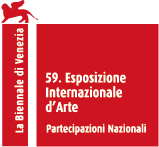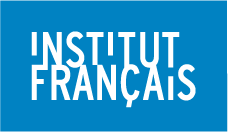
Resonances with the French Pavilion
The project presented by the artist Zineb Sedira in the French Pavilion of the Venice Art Biennale unfolds beyond the presentation of the work in situ from April 23 to November 27, 2022. The resonances around the project begin in upstream, during the Biennial and continues well after.
The resonances echo the artistic project of the Pavilion and give visibility to the artist and the curators.

THE INTERNATIONAL SCOPE OF THE FRENCH PAVILION
Zineb Sedira’s acclaimed French Pavilion will give rise to various events in 2023 as well as a tour of the readapted work
INSTITUT FRANÇAIS DU CAMBODGE / PHNOM PENH « LE CINEMA UNE ARME »
Evening screenings and discussion with Zineb Sedira and Léa Morin. Screening of the French Pavilion film Les rêves n’ont pas de titre (Dreams have no titles).
FRENCH INSTITUTE OF THE UNITED KINGDOM / LONDON "LE CINEMA UNE ARME"
Evening screenings and discussion with Zineb Sedira and Léa Morin. Screening of the French Pavilion film Les rêves n’ont pas de titre (Dreams have no titles).
GERMANY / HAMBURGER BAHNHOF - NATIONALGALERIE DER GEGENWART, BERLIN
Dreams have no titles – presentation of an adaptation of the French Pavilion project for the Venice Biennale.
SOUTH KOREA / FRENCH PAVILION OF THE GWANGJU BIENNALE
Dreams have no titles – presentation of an adaptation of the project of the French Pavilion of the Venice Biennale.
14th Gwangju Biennale - soft and weak like water.

After the Biennale Arte 2022 via “La Collection” of the Institut français
For the Institut français’s “La Collection”, the curator and researcher Léa Morin has created a programme of films titled “Le cinéma, une arme” (Cinema as a weapon), organised in three parts: cinema of struggles, cinema of movements and cinema of geographies.
The programme will be available to France’s international cultural network and will be screened in Berlin (summer 2022), London (september 2022), et Phnom Penh (november 2022). Other screenings are currently being confirmed.
Echoing the work of Zineb Sedira, the programme continues her exploration of historical narratives and questioning of the themes of collective memory and the transmission of this heritage.
By exploring the relationship between cinema and reality, art and politics, as well as history and memory, the films in the programme question the role of cinema and of art as means of action in the face of social and political injustice.
CURATED BY LÉA MORIN: 3 SCREENING PROGRAMMES OF RECENT AND HISTORICAL FILMS, VIDEOS AND DOCUMENTARIES :
Programme 1
Mise en scène by Zineb Sedira, 2017, France
Le Glas by René Vautier, 1969, France
Spell Reel by Filipa Cesar, 2017, Guinea, France, Portugal, Germany
Programme 2
Ali au pays des Merveilles by Djouhra Abouda and Alain Bonnamy, France, 1976
Rock Against Police by Nabil Djedouani, France, 2020
Programme 3
Moonscape by Mona Benyamin, 2020, Palestine
Juste un Mouvement by Vincent Meessen, 2021, Belgium, France
« VENISE 2022 » BY RAYANE MCIRDI
“Venise 2022” is not only a significant event on the international cultural scene, but is also the name of a project of artistic and historical reflection that was launched in Gennevilliers inMarch 2021. The project is being undertaken by Chaker, Chayma, Djaafar, Doria, M. Douss, Horya, Imane, Léa, Inès, Madjid, Messaoud, Miloud, Rayane, Syrine, Zaineb, and the city’s deptartment of culture and youth.
At its heart are encounters and a will to explore part of a shared history of those involved in this work of memory. On the one hand are the Chibanis, a word borrowed from Maghrebi Arabic (ينابيش: the one with white hair) to designate the workers who arrived in France in the 1950s from certain of its colonial dominions. Now retired, they still often live in workers’ hostels (there are five in Gennevilliers). On the other hand are young people, aged between 16 and 21, born or studying in Gennevilliers, many of North African descent, encountered at the Lycée Galilée, as part of the city’s youth programmes, or during the commemoration day for 17 October 1961. Alongside them are the artist Rayane Mcirdi – mentored by Zineb Sedira – Madjid Assoul, head of the youth service, and Horya Makhlouf, cultural mediation officer.
During this long-term investigation, directed on a voluntary basis, the Chibanis and the young people meet, question and listen to each other, tracing unofficial and missing accounts of the historical and official discourses recounting the Algerian War and French colonisation. In the workers’ hostel at 115 Avenue des Grésillons,
in the Éspace Mandela, dedicated to the youth of Gennevilliers, in the École Municipale des Beaux-Arts/Galerie Édouard-Manet, as well as in the Cinéma Jean- Vigo, they have collected words and memories, made up of anecdotes and archives, watched examples of counter-narratives and films, suggested by Zineb Sedira (including Mohamed Lakhdar-Hamina’s Chroniques des années de braise, winner of the 1975 Palme d’or in Cannes but since forgotten).
A film will be created from all this living material, and from the exchanges that nourished it, directed by Rayane Mcirdi and co-written with his young collaborators. It will be a testament to an intergenerational experiment of discovery of the other, of sharing knowledge and histories, both personal and collective.
By Madjid Assoul, Horya Makhlouf, Rayane Mcirdi


Les Mains libres, its rediscovery and restoration by Léa Morin, research associate for Zineb Sedira’s project for the French Pavilion
The Algiers production company Casbah Film, created by Saadi Yacef, one of the leaders of the Algeiran revolution, wanted to produce a documentary on Algerian independence. For Yacef, “Film is a weapon at the service of Revolution and democracy”. To achieve his goals, he called on an Italian director, the anti- imperialist activist, Ennio Lorenzini.
Filming began late in 1964, with future filmmaker Mohamed Zinet as assistant director. Successively titled Les Algériens, Tronc de figuier and finally Les Mains libres, it premiered at the Cinéma Afrique in Algiers in April 1965, where it was hailed as the country’s first feature- length colour film. The following month it was screened out of competition at the Cannes Film Festival. But after several screenings in Italy and in Algeria in 1966, the documentary, which invited the Algerian people to “recover after so many decades of oblivion and obscurantism”, and asked questions of the nation that was being built, was never shown again.
While looking at the history of cultural and cinematographic co-productions in Algeria from the 1960s to the 1980s, artist Zineb Sedira became particularly interested in this film with the changing title, which has remained invisible and to which there are very few references. In a short space of time, Les Mains libres became the framework for her new project.
Zineb Sedira has engaged in an intense exploration of the intersecting film histories of Algeria, Italy and France, consulting documents and looking at images in the film libraries and archives of the three countries, conducting interviews, and visiting buildings, studios and laboratories – some abandoned – while focusing her attention on the gestures and architectures of preservation.
From these interests and research, a restoration project was born, carried out by the Cineteca di Bologna with the laboratory L’Immagine Ritrovata. The work was undertaken from a 35 mm copy of Les Mains libres found in the archives of AAMOD (Archivio Audiovisivo del Movimento Operaio e Democratico) in Rome, where Ennio Lorenzini deposited his film reels. Two reels were also found in the CAC (Centre Algérien de la Cinématographie), whose team have recently restored, digitised and screened a few minutes of the documentary. In the midst of cinematic histories that are often very nationalistic, and the contemporary reality of North-South co-productions in which the Western industry’s dominant vision can be problematic for more precarious filmmaking, Zineb Sedira investigates the history of co-productions in which Algeria excelled. After supporting independent revolutionary filmmakers, Algeria co-financed and developed films with European countries including France and Italy, notably via the ONCIC (Office National pour le Commerce et l’Industrie Cinématographie).
While promoting activist films that recounted the Algerian revolution and anti- colonial struggles, or celebrated solidarity between people, such as The Pan- African Festival of Algiers (1969) by William Klein, the Algerian state also financed spaghetti westerns, including Enzo Peri’s The Pistol, the Karate and the Eye (1966), produced by Casbah Film, documentaries and feature films on immigration such as Annie Tresgo’s Les passagers (1971), political films – Z (1969) by Costa-Gavras for example – and even historical and dramatic productions, such as Le Bal by Ettore Scola (1983) and Jean-Louis Bertucelli’s Ramparts of Clay (1970).
Designed by Steppers
Institut français, all rights reserved 2022 - Privacy Policy


